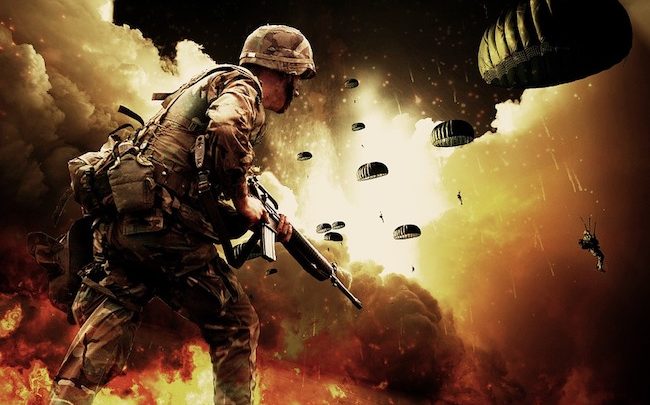The older we get the less warlike we become

Traditionally old men have sent young men to fight the wars they have started. Today, if we look at the world-wide picture, it may be somewhat different. Old men may be shying away from war while young men are still beholden to it. The number of wars around the world has never been so few.
The world, as never before, is becoming demographically lopsided, with older people concentrated in rich countries and the young in not-so-rich countries. These older societies are becoming less warlike, as the influence of the experienced and the wise filters down into the body politic. Well, that may be so until the Ukraine war arrived on our doorstep. As the pope said the other day in Hungary, “Don’t listen to the solos of war (i.e. Biden and Putin), listen to the chorus for peace”. But Ukraine may be the exception that proves the rule: older people around the world are more against war than the young.
There are a number of well-regarded studies that show how so-called “youth bulges” contribute to violence and conflict within states. Countries that have a high ratio of people aged 15-24 among the adult population have an increased likelihood of domestic terrorism and civil war.
A new study takes this further. In an article in Harvard’s “International Security”, a group of academics examined whether “youth bulges” alter the probability of military conflicts between states. They find they do. When a society contains a high percentage of young people it is more likely to go to war.
How does this come to be? How does it work out?
It’s not just that younger people are hotter headed, more ready to take offence, more worried and frustrated about realizing their natural urge to be independent, more likely to be unemployed and more prone to being radicalized by causes, it is that a youthful society makes recruitment by the military cheaper, and by rebel groups easier. A surplus of young men significantly lowers the cost of recruiting an army. In contrast, countries with fewer young adults spend more on personnel and therefore have less for weapons development and procurement. Older societies are compelled to pay more for their soldiers. Moreover, as the number of truly aged climbs upwards the financial demand on pensions and social services and welfare increases.
Old societies have less motive for engaging in conflict for two reasons. First, is the increased public aversion to losing a child in battle as family size decreases. Second, is the well-proven fact that older people are more averse to war. In ageing societies that are democratic the older, because of their numbers, are more politically influential. Since young people tend to vote less this bias is even more pronounced.
A Pew study in 2006 that analysed earlier surveys from the 1960s to the mid-2000s concluded that “nearly four decades of survey show that there is a generation gap over US military interventions”, with elderly Americans exhibiting, “the greatest wariness about using military force. This was evident during the war in Vietnam and remains the case today.” An interesting truth is that while large numbers of young people went out on the street to protest the Vietnam war most young people were for it. Contrariwise, while older people did not publicly demonstrate, in private they were against it.
Studies made in the UK and Germany found similar attitudes when it came to the support of the more recent Afghanistan and Iraq wars.
The US is moving in this direction more slowly than the other “greying” powers because its population is so young, thanks to large-scale immigration in the 1980s and 1990s.
Its military age cohort of 18- to 23-year-olds is forecasted to expand by 9% from 2010 to 2050. In China and Russia, in contrast, this cohort is predicted to decline by 50 and 39%, respectively. One result is that the US is spending less of its military budget per head in personnel costs than its European allies.
Russian has a severe ageing problem. During the 2000s it spent considerably more on military retirees for much of the decade than it did on either weapons procurement or military research and development. It doesn’t have enough conscripts and has had to increasingly rely on more expensive contract soldiers. Russia has been militarily active in recent years but always its interventions have been where there is a low risk of significant casualties. War is increasingly unpopular in Russia.
China, supposedly a young country, is becoming an old country at an incredible rate. The one-child policy worked too well. Even though it has been relaxed, the birth rate remains low. As early as the mid-2000s China was experiencing labour shortages. China is spending more on less soldiers.
Because China will become old before it can become a global peer of the US the likelihood of a dangerous conflict is lower than many talk and write about.
Are we going to see a demographic peace? It could happen. Russia and China in future will take less risks when it comes to initiating a major conflict. Later, the US will follow in their footsteps. It will be a bumpy road, but it should lead to more peace.
Not many of us like the idea of growing older but it might be one of the best things humanity has ever done.




